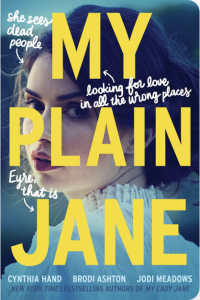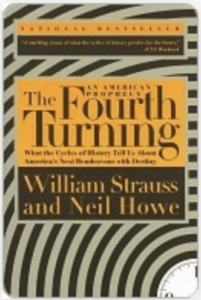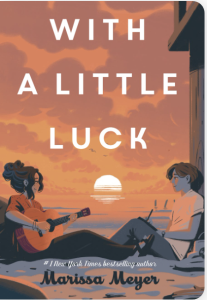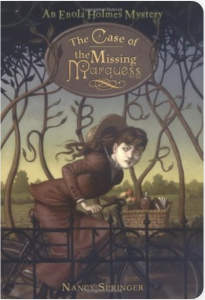C.A. Gray's Blog, page 6
December 16, 2024
Review of My Plain Jane

This had a lot of potential, I thought – it’s very tongue-in-cheek of course, and intends to be funny, taking the well-known plot of Jane Eyre and inserting ghosts. It’s not too big a stretch, since there are already gothic overtones to the story. But in this one, Jane not only sees ghosts, but she’s a “beacon,” which means ghosts are attracted to her. Her friend Helen Burns, who dies at the beginning, persists as a ghost throughout this version by Jane’s side. Charlotte Bronte herself is almost a main character in this one, and she gets the love story, not really Jane. This is because Mr. Rochester is only in love with her because (spoiler alert): he’s possessed by the ghost of his dead brother.
I liked this enough to finish it, but I only half-listened while doing other things. I love the story of Jane Eyre, and this version kind of changed most of the things I enjoyed about the original. It was mildly amusing, at least.
My rating: ***
Language: none
Violence: I think there is some but it’s so silly it doesn’t come off as violence
Sexual content: none
Political content: none
The post Review of My Plain Jane appeared first on C.A. Gray.
December 10, 2024
How to Plot a Payback

This was so adorable!
I love a good chick lit book, but it’s so rare that they’re actually good–meaning they don’t fall too heavily into overdone tropes or formulas, and the characters feel believable. It’s also VERY rare to find one that’s clean. This book checks all those boxes. It’s original: Lavender and Finn are both British, and they attended uni together. But while there, Finn was cast as Puck in “A Midsummer Night’s Dream,” while Lavender was his understudy. (I didn’t realize that the gender of the character was unimportant.) Lavender, notoriously oblivious to her surroundings, left a trap door open, Finn didn’t see it, and fell through, shattering his ankle. Naturally this meant that Lavender played the role–and there was a talent scout in the audience. So she got “discovered,” and it launched her long-standing sitcom career. Finn, meanwhile, nursed a grudge, though she had no idea.
This isn’t the only reason he has to hate Lavender though–she managed to completely unknowingly screw up his life in a myriad of other ways too, but she was so clueless that she couldn’t even recall ever meeting him when they run into each other on the set of “Neighbors” (which I’m sure was inspired by “Friends”), where Finn becomes one of the writers. Now that he has power over her character, he intends to find some way to get even… only every attempt backfires, and the endearing Lavender even thinks he had the best of intentions.
It’s sweet, fluffy, and satisfying– everything a good chick lit book should be.
My rating: *****
The post How to Plot a Payback appeared first on C.A. Gray.
December 4, 2024
The Fourth Turning

What a fascinating and original concept!
I was first introduced to the idea of “cycles” of history from I think a news article or a blog post somewhere, but at last read the original source text… and it’s equal parts philosophy and history, tracing the cycles of Western culture from the 1500s, though the late 1990s, when this book was written. They make the argument that, with only one exception that I recall, generations in 20-year increments follow the following patterns: Heroes (those who come of age during a time of major upheaval and crisis), then Artisans (those who come of age in the “high” time that follows the upheaval, a time of rebuilding the outward structures of society that were so recently either dismantled or in peril), then Prophets (those who come of age in the “awakening” period that follows the high — a time when people stop thinking only of the external structure of the world, and the pendulum begins to swing back the other way, toward internal and spiritual inner values), and then the Nomads (who come of age during the “unraveling,” the period in which the structure of society begins to come apart at the seams, leading to the next crisis.)
Each “seculum,” or full turn of this cycle, thus takes approximately 80 years, give or take. Someone who lives a very long life may live to see the beginning of the next seculum. The only exception they note is that during the Civil War, there was no “hero” generation–I think because there was no external enemy. Rather, the seculum in that case went straight from nomad to artisan during the Reconstruction period. But otherwise the cycle is very consistent.
They spend the first several chapters detailing the archetypes of each generation, giving examples from literature (fascinating how well this maps to Joseph Campbell’s hero’s journey, too, where most stories involve young hero archetypes being mentored by the older prophet archetype, a half seculum ahead of him, helping to remind him of the inner spiritual values to guide him in his external fight). Then they trace history from the 1500s in England on into the New World, right up to the present day. I listened to the book, but could easily go back through and read a kindle version so I could highlight and make notes.
Apparently the book gained popular acclaim after the 2008 economic crisis hit, since the authors’ prediction was that the millenial “fourth turning” should arrive and last somewhere in the ballpark of 2005-2026. They were eerily accurate.
My rating: *****
The post The Fourth Turning appeared first on C.A. Gray.
November 29, 2024
Review of Superman: Dawnbreaker

I’d attempted to read this several years ago and gave up, because of the density of the cussing, right in the prologue. I tried it again now because I’m currently re-watching “Lois and Clark,” one of my favorite series from back in the day, and I couldn’t quite get enough Superman. I got past the cussing this time and discovered that was just the “action” up front. There was more cussing in the rest of the book, but not nearly as intense as it was at the beginning.
The story follows Clark as a teenager in Smallville, before he’s Superman, and before he even knows he’s not human. He knows he has strange powers, but they’re popping up almost unbidden, and he’s almost frightened of them, as he doesn’t yet know what they are and doesn’t entirely have control over them either. It’s like they’re showing up with puberty or something, except that he’s almost 18 by this point. This is the part of the story that most intrigued me, though the depiction of Clark as a teenager is really not classic “Superman”–he’s more of a moody teenager in this one, though I think that was realistic and believable. He also had a crush on a girl named Gloria, even though Lana Lang (supposed to be his high school sweetheart) was a character in the story, and he had a brief moment of attraction with her; she’s otherwise just his best friend.
The actual plot was a bit woke, though. It was very heavily focused on racism, in a superficial way that no one could possibly disagree with, but it painted a lot of complicated political issues with a very broad brush, as if there was only one moral high ground: the “racist” and the “not racist” position. But of course; the book was written in 2019. The author (or maybe his publisher?) couldn’t resist erecting a “straw man” and then having Superman beat the everliving tar out of it.
My rating: ***1/2
Language: moderate
Sexual content: none
Violence: present but not gratuitous
Political content: moderate to heavy
The post Review of Superman: Dawnbreaker appeared first on C.A. Gray.
November 22, 2024
With a Little Luck, Marissa Meyer

I’ve always loved Marissa Meyer’s style–she’s lighthearted, clean, and always manages to infuse her books with a touch of the fantastical, even if they’re urban rather than futuristic or high fantasy. In many ways, this was the classic YA rom-com, but with a flair of the subtle supernatural.
Shy, nerdy Jude has spent most of his life crushing on popular Maya, but has never gotten up the nerve to talk to her before–while utterly oblivious to his best friend, Ari, who obviously has a thing for him. (The unreliable narrator on this was terrific, by the way: the story is told through Jude’s eyes, and he can’t tell Ari likes him, but even just by his external descriptions of Ari’s behavior, it couldn’t be more obvious to the reader.) But when Jude suddenly finds a pair of magical dice, a la Dungeons and Dragons (his favorite passtime), he suddenly finds that everything goes his way. Once he realizes that luck is with him, he wins tickets to a concert he doesn’t even care about, but that he knows Maya is desperate to attend, and asks her out. At last, the fantasy becomes his reality…
I liked how Meyer subverted expectations, though, and didn’t play into stereotypes. (Jude even said as much at several points in the story, as the narrator.) Maya isn’t the cheerleader, or a jerk, and when Jude discovers what she’s really like, he doesn’t find that she’s super shallow, either. But (I don’t think this is even a spoiler,) he has to both achieve the fantasy in order to learn that what he really wanted all along was right in front of him. And then he has to lose the luck, in order to believe that he’s good enough, just the way he is.
It’s not super deep or anything, but it’s a fun, clean, feel-good story with a happily ever after, just like YA chick lit ought to be.
My rating: ****
Language: none
Sexual content: none
Violence: none
Political content: none
The post With a Little Luck, Marissa Meyer appeared first on C.A. Gray.
November 14, 2024
Becoming Mrs. Lewis, Patti Callahan

This was so good… and yet so heartbreaking at the end!
It was recommended to me by an acquaintance, who told me that this is the love story of Joy Davidman and C.S. Lewis. I knew she died young, and left him bereaved, so I asked, “It’s not about her death, though?” She said, no, it’s their love story.
Spoiler alert: she lied. But only kind of… because there’s really no way to tell their love story without including her declining health; it’s a pivotal part of the story. And there was a *little* redemption, so it wasn’t JUST straight heartbreak.
I was immediately sucked into this first person novelization of Joy’s life. She is written as such a sympathetic character, trapped in a dreadful marriage at a time when divorce, even for infidelity and abuse, was difficult at best. Because of all the stress (or at least that’s what I gathered), her health was delicate. It’s at this time in her life that an acquaintance who happens to be an American scholar on C.S. Lewis (strange that there is a scholar whose specialty is on the work of another living scholar) introduces her, via correspondence. I knew that Joy and Lewis corresponded for years while she was still in America and still married, but I think I was always a little in love with Lewis’s mind myself, so I SO identified with Joy’s feelings for him. What seemed strange to me was that she denied to herself for so long the nature of what she felt, because of Christian expectations (again, never mind that her husband was abusive and cheating). At last, when her health takes a turn for the worse, her doctor tells her that she must get away from her stress, or she will die. So, two years into her correspondence with Jack (as he’s known by his friends), she at last indulges what she’s wanted to do for so long. She leaves her boys behind with her husband and her cousin Renee (who ironically had come to live with them to get away from her own alcoholic husband), and she goes to England.
What follows is, essentially, a forbidden romance, filled with longing and tension and mental anguish on Joy’s part, never knowing what exactly Jack is thinking, even as he becomes increasingly dependent upon her friendship and scholarly support. His actions lead her to believe that he loves her, but when she can stand it no more and all but asks, he essentially shuts her down. She realizes later that he has his own hangups that must be overcome. Joy’s husband, meanwhile, falls in love with her cousin Renee, and at long last, Joy finally gets her divorce, and brings her boys to England. What finally brings about a change in Jack and Joy’s relationship is the fact that her visa is about to expire, and unless she marries a citizen, she’ll be deported. But this is the age in which King Edward VIII abdicated to marry an American divorcee, because the Church of England would never condone it–so Jack assumes the church will not marry them in the eyes of God either.
This is why Joy’s illness is so pivotal. It brings their suppressed feelings to a head, forcing out into the open what has long been denied…
I don’t like sad endings, but as I said, this one has a *bit* of a bittersweet character to it. And otherwise, so engrossing!
My rating: ****1/2
Language: none
Sexual content: none
Violence: none
Political content: none
The post Becoming Mrs. Lewis, Patti Callahan appeared first on C.A. Gray.
November 8, 2024
Review of A Lady’s Guide to Marvels and Misadventure

This is a sweet slow burn romance with gentle adventure and some “polite” violence. I almost quit reading early on, because I had so little patience with the main character Clara’s frosty demeanor toward “Arthur,” whose name we later learn is not actually Arthur, but Theodore. He’s a military vet who is missing a leg, but he doesn’t want to tell Clara his back story because he was so traumatized and wants a fresh start. But this makes her distrust him; she too was traumatized by a former fiancee, who took advantage of her and her family, and now she’ll never trust anyone again (or so she vows). She’s absurdly and completely unjustifiably mean to him for perhaps the first third of the book, while he has a crush on her in spite of this. But she finds herself saddled with both him and her animal-obsessed mother as she pursues her slightly insane grandfather on his merry scavenger quest around London, riddled with animatronic steampunk animal inventions. Along the way, Clara’s ex pursues her for nefarious purposes, and Theodore is forced to protect and save her on more than one occasion, in spite of Clara’s vehement independence. This eventually softens Clara’s heart, of course.
I didn’t realize until perhaps halfway through that the book has a Christian theme, though after that it becomes very overt. I don’t usually care for Christian fiction, ironically enough, because it tends to be too heavy-handed and prioritize the message over the story, but I actually think this one struck a good balance there. I didn’t feel like it became too preachy; the spiritual messaging in this case served the story and fit well with the characters. I just
My rating: ***1/2
Language: none
Sexual content: none
Violence: basically none (it’s quite mild)
Political content: none
The post Review of A Lady’s Guide to Marvels and Misadventure appeared first on C.A. Gray.
November 1, 2024
Review of Starter Villain

This is definitely not my usual fare, but some of the abundant f-bombs toward the beginning of the book were so well placed that I was literally crying, I was laughing so hard…
The story follows Charlie, a down-and-out 30-something divorced substitute teacher who lives with his cats, in the home he grew up in after his father passed away. His half-siblings resent the fact that he lives there rent-free, and barely speak to him. Nothing in his life is going well, until he learns that his long lost billionaire uncle has died, and named him his heir. The only problem is, behind his legitimate businesses, Charlie’s uncle happened to be a supervillain. And he also happened to keep tabs on Charlie, via his genetically engineered super-intelligent cats.
This is a ridiculous and irreverent romp, with tongue-in-cheek dry humor the whole way through, peppered with at times WAY too much swearing (wait till you get to the dolphins in a labor dispute), and over-the-top violence in almost comic book style. As Charlie learns the ropes of his new inheritance, I kind of glossed over the details, trusting that it all made sense, and just listening for the antics. It was entertaining, but the language was so bad that I might not read anything else by this author.
My rating: ****
Language: about as bad as it gets!
Sexual content: nothing appears on the page but there’s a lot of crude jokes
Violence: over-the-top but in Monty Python style, almost
Political content: not that I recall??
The post Review of Starter Villain appeared first on C.A. Gray.
October 25, 2024
The Dragon’s Prophecy

I think this is the third book by Jonathan Cahn I have read. All of them have a lot in common: he looks for patterns in modern events, and draws parallels between those and Biblical events, often coming down to patterns in numerical calendar dates to show that one is a “type” of the others. Some of the correlations he draws are jaw-dropping; others seem like a stretch. This book was no different, but it’s even more prescient than the others, because it involves the Hamas attacks upon Israel on Oct 7, 2023, and how this is actually the resurrection of an ancient enemy of Israel, following a predictable pattern drawn from both biblical accounts.
As in his other books, Cahn focuses a great deal on the pattern of the Jubilee–how many things concerning Israel occur on 50-year cycles. We don’t actually know when the ancient Jubilees were before Israel was dispersed, because those records are lost, and I’d never seen him admit that in previous books, but he does in this one. However, I do have to admit that the 50-year cycles he’s identified since Israel regained its land, and even 50 years before that, is quite eerie.
This book also ventures into the subject of end times, though he makes no predictions regarding timing. He does imply that this attack of Hamas upon Israel is shaping up such that it *might* prefigure, or might even become, Ezekiel 38-39. Then he treats Revelation, describing Israel’s foretold fate (and how it too follows the ancient pattern) right on through to the New Heaven and the New Earth.
Absolutely compelling, and very timely!
My rating: *****
Language: none
Sexual content: none
Violence: it’s there, but factual
Political content: has to be. It’s very right-leaning, though; certainly not woke.
The post The Dragon’s Prophecy appeared first on C.A. Gray.
October 18, 2024
The Case of the Missing Marquess

This follows the Netflix remake very closely, which I happened to have watched first before I read the book (I hadn’t even realized it came from a book.) Very entertaining and well-written though!
The story follows Enola, Sherlock Holmes’s much younger sister, who finds that her mother has disappeared. Nobody (including Sherlock and his older brother, Mycroft) expect much from either mother or daughter, as in that society, nobody thought much of the intelligence of women. (There is a definite feminist angle here, but it didn’t bother me as much as it would in a book set in modern times. Back then, it was historically accurate.) Enola knows that her mother loved wordplay, and as she follows the clues her mother left for her, she’s forced to do plenty of her own sleuthing, invoking the name of her famous older brother and encountering a runaway titled young boy along the way. (In the book, the boy was significantly younger than Enola, though in the film, he’s a love interest.)
I don’t know if I’ll read on in the series–not sure if I’m *that* into the concept, but this one was a fun read.
My rating: ****
Language: none
Sexual content: none
Violence: none that I can recall (and if it was there, it wasn’t significant)
Political content: just the feminist thing
The post The Case of the Missing Marquess appeared first on C.A. Gray.



